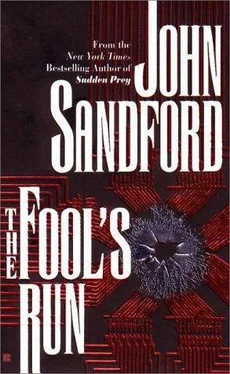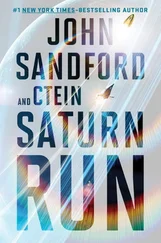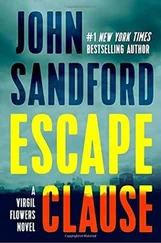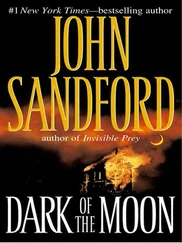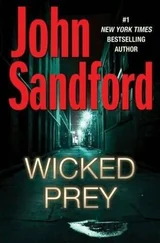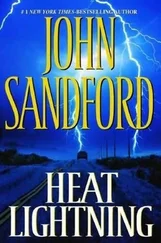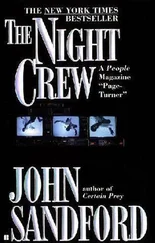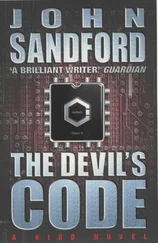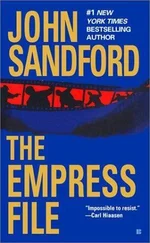John Sandford - The Fool's Run
Здесь есть возможность читать онлайн «John Sandford - The Fool's Run» весь текст электронной книги совершенно бесплатно (целиком полную версию без сокращений). В некоторых случаях можно слушать аудио, скачать через торрент в формате fb2 и присутствует краткое содержание. Жанр: Триллер, на английском языке. Описание произведения, (предисловие) а так же отзывы посетителей доступны на портале библиотеки ЛибКат.
- Название:The Fool's Run
- Автор:
- Жанр:
- Год:неизвестен
- ISBN:нет данных
- Рейтинг книги:5 / 5. Голосов: 1
-
Избранное:Добавить в избранное
- Отзывы:
-
Ваша оценка:
- 100
- 1
- 2
- 3
- 4
- 5
The Fool's Run: краткое содержание, описание и аннотация
Предлагаем к чтению аннотацию, описание, краткое содержание или предисловие (зависит от того, что написал сам автор книги «The Fool's Run»). Если вы не нашли необходимую информацию о книге — напишите в комментариях, мы постараемся отыскать её.
Con artists Kidd and LuEllen utilize state-of-the-art, high-tech corporate warfare to organize the technological takedown of a defense industry corporation, but their string of successes is cut short when the ultimate con artist gets conned.
The Fool's Run — читать онлайн бесплатно полную книгу (весь текст) целиком
Ниже представлен текст книги, разбитый по страницам. Система сохранения места последней прочитанной страницы, позволяет с удобством читать онлайн бесплатно книгу «The Fool's Run», без необходимости каждый раз заново искать на чём Вы остановились. Поставьте закладку, и сможете в любой момент перейти на страницу, на которой закончили чтение.
Интервал:
Закладка:
It all takes money. Only a small fraction of my earnings comes from painting, but the fraction is getting larger. A bigger chunk comes from the computer models. The models predict political behavior, using social statistics, a cynic's view of history, and a variety of small computers. If you want to be a state legislator, governor, congressman, or U.S. senator from Wisconsin, Minnesota, or several other states of the upper Midwest, you can buy a Kidd election model and run it on your own IBM office machine. You crank in a political position, and out comes a result in terms of vote shifts. If you don't like the answer, you can crank in a different position. A model like that will cost five to twenty grand, depending on how rich you are.
Sometimes, especially in political off-years, I take less conventional computer-related jobs. They pay the best of all.
I told most of this to Rudolph Anshiser himself three hours after Maggie and I flew out of St. Paul. We were met at the O'Hare general aviation terminal by a gray Mercedes limousine. The chauffeur wore a blue pinstriped shirt and rep tie. He looked like he might own a company or two himself.
We drove north and east out of O'Hare. Forty-five minutes after we left the airport, the chauffeur turned off the arterial highway into a four-lane street through an expensive neighborhood. It may have been Evanston, but may also have been a bit farther north. Eventually we left the four-lane street for a two-lane through an even more expensive neighborhood, and finally turned onto a blacktopped lane that twisted and turned past gated entries and vine-covered walls. We stopped at a brick gatehouse with wrought-iron gates. The chauffeur pressed a button on the car's dashboard, and the gates rolled open.
Behind them were two acres of crisply landscaped grounds dotted with oak, ash, and the distinct forms of gingko trees. Here and there were the stumps of departed American elms. The house, a pile of ivy-covered brick, covered another quarter acre. Lake Michigan broke against a seawall in back.
The chauffeur stopped at the arched front entry, and Maggie led me across a red quarry-tile porch, through a dimly lit, walnut-paneled entry hall and into an old-fashioned parlor. She pointed at an overstuffed chair.
"I have to report. We'll have you up in five minutes," she said.
She left, and I sat down and looked around the room. It had the peculiar stillness that comes with a lack of living-in. It was a waiting room, but few people waited in it. There was a blocked-up fireplace, flanked on both sides by bookshelves loaded with obsolete business texts. Another wall featured a narrow window with heavy brocade drapes drawn back to show a thin slice of green lawn. Little, sparkly dust motes glimmered in the shaft of sunlight that came through.
A German Romantic oil painting hung over the fireplace, and my eye kept skipping over it. From the corner, beside the bookshelves, a much smaller painting made noises at me. I finally heaved myself out of the chair and went over to look at it. Then I got down in front of it.
Damn. A Whistler. One of the pastels from Venice. A street scene with strollers and a garbage-eating dog. The buildings, outlined in black chalk on gray-toned paper, leaned out over the crowd, and were brought to life with a few simple touches of color. In the lower left-hand corner was his butterfly signature. I'd never seen it before, not the real thing. The painting was hung five feet off the floor and I was practically down on my knees peering at it. The light was terrible. I didn't hear Maggie come back.
"Like it?"
I jumped and turned.
"Jesus. This is a Whistler."
"Uhh-huh." She was not interested.
"Yeah. I like it." I went back to it. How did he make it so real, with so few lines and so little color? I looked at it until Maggie started fidgeting.
"Okay," I said, and followed her out of the parlor and up a curving walnut staircase to the second floor. A long, carpeted corridor crossed the stairs at the top, running both ways the full length of the house. We turned left, past bedrooms now converted to offices. There were people in some of the offices, working over computer screens or stacks of paper. They didn't look up as we passed. Halfway down the hall, Maggie knocked at a heavy oak door and went through.
This room was a complete contrast to the waiting area. Anshiser had opened up the rear wall with huge glass windows. The lake made a sharp, dark horizon line as far as you could see to the north; to the south you could sense the great cul-de-sac at South Bend.
Anshiser, in wheat jeans and a blue rough-silk sweatshirt, sat behind an ornate table, his back to the windows. Another man, dressed in a gray business suit, white shirt, wine tie, and wingtips, sat on a side chair, one leg crossed over the other. Maggie and I plodded across a pond-sized carpet, and Anshiser stood to shake my hand.
"Mr. Kidd." His face had once been craggy, but the crags were softening with age and erosion. His eyebrows were thick tangled mats hanging over the pale blue eyes of a born killer-a man who lived on energy, but his energy, betrayed by the flesh, was beginning to fail. He gestured to a leather chair. As I sat down, facing him across the table, I noticed that his hand shook.
"This is Mr. Dillon," he said, indicating the man in the side chair. Dillon nodded.
Two computer terminals squatted on Anshiser's table. One was a dedicated stock-trading link, its screen covered with lists of numbers in tiny amber print. The other was a general-purpose IBM showing a dense block of text, a report of some kind. As he introduced Dillon, Anshiser reached out and tapped a key sequence, and the screen went blank.
"Tell me how you identified us," he said. "I don't want any trade secrets, just in general."
I told him, without mentioning names or phone numbers.
"Hmm." He pulled at his chin when I finished. "Suppose somebody like your friend wanted to get into my company files. Is there any foolproof way to protect them?"
"From the outside? Sure. Don't hook them up to a telephone. Your little IBM there"-I nodded at his desktop terminal-"is absolutely secure from telephone interference as long as the modem is turned off. If you set it to auto-answer, because you have people calling in, then you could have a problem. And I assume you're hooked into a mainframe, which means that it has incoming lines, so that could be vulnerable."
"Everything important is protected by randomly generated passwords."
"There are lots of ways to get passwords."
"Tell me one."
I told him several, and, since he lived on a lake, mentioned work done in the Netherlands involving the processing of images projected onto computer monitors.
"Everything that shows up on a monitor is the result of a high-speed beam that scans back and forth across it-letters, words, pictures, everything. As the beam switches on and off it creates an electromagnetic pulse, sort of like a radio wave. It's weak, but with the right gear, it can be picked up, amplified, sorted, synchronized, and reproduced on another screen, up to a few hundred feet away. Or further, if there isn't much interference. A boat on the lake would do quite well. They wouldn't have independent access to your files, but they'd see everything you see."
When I finished, Anshiser glanced out at the lake, then over at Maggie, who was sitting at a side table with a leather-bound book.
"Check this," he said briefly.
She nodded. "I'll call that FBI fellow who helped on the container ship contamination problem. He should know somebody."
Anshiser turned back to me, contemplated my face for a minute, and then decided. "Have you had any contact with the aviation industry?"
I shrugged. "Not much. I did some work on Boeing's economic and political clout in Seattle, and plugged the data into a political model. It didn't come to much."
Читать дальшеИнтервал:
Закладка:
Похожие книги на «The Fool's Run»
Представляем Вашему вниманию похожие книги на «The Fool's Run» списком для выбора. Мы отобрали схожую по названию и смыслу литературу в надежде предоставить читателям больше вариантов отыскать новые, интересные, ещё непрочитанные произведения.
Обсуждение, отзывы о книге «The Fool's Run» и просто собственные мнения читателей. Оставьте ваши комментарии, напишите, что Вы думаете о произведении, его смысле или главных героях. Укажите что конкретно понравилось, а что нет, и почему Вы так считаете.
